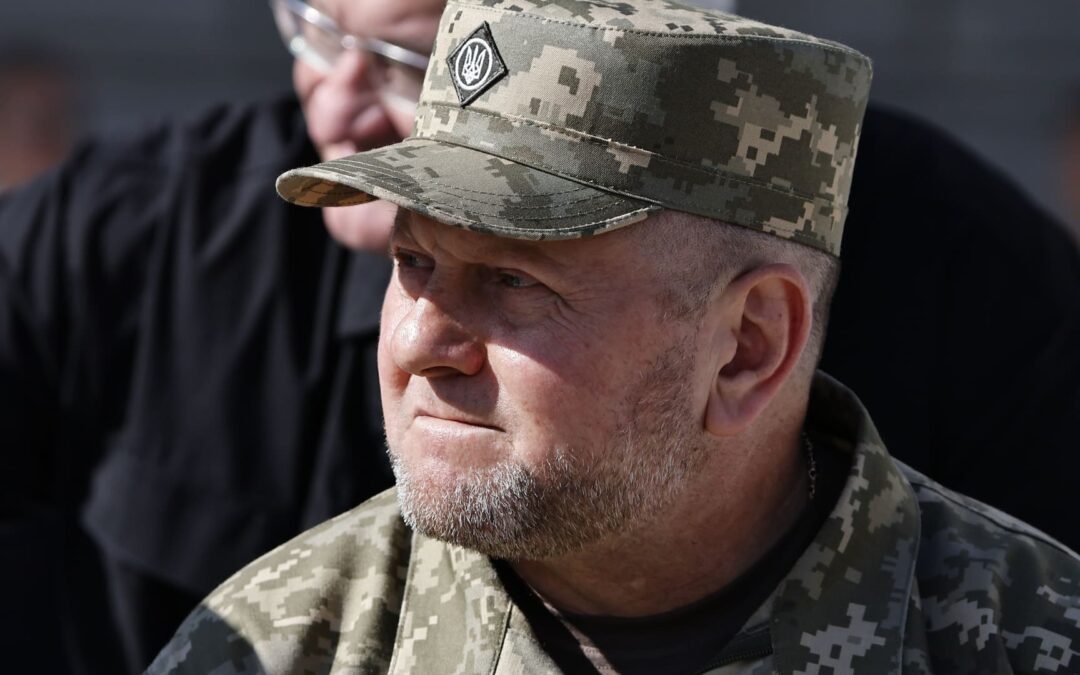West could try to ‘shake up’ Russian politics ahead of presidential vote, official warns
A top official in Russia’s Security Council has claimed the West could try to disrupt Russia’s domestic politics ahead of upcoming presidential elections in Russia.
“We believe that what is happening now is not the limit. On the eve of the Russian presidential elections, the West will make a special effort to try to shake up the internal political situation in our country,” Nail Mukhitov, the assistant to the secretary of Russia’s Security Council, told the Tass news agency in an interview published Wednesday.
Mukhitov did not provide any further detail on what he believed the West might do to disrupt the presidential election on March 15-17, nor did he present any evidence for his claim, but he said “the futility of these attempts is obvious.”
“The West lost the hybrid war against Russia. We did not break under the sanctions, we did not allow ourselves to be deceived by fables about a beautiful and prosperous life in Europe and America. We did not succumb to the provocations of the American and British intelligence services, which incited interethnic and interreligious hatred,” Mukhitov said, repeating Russian claims that Western nations had incited recent anti-Jewish unrest in the Russian republic of Dagestan. The White House previously described those allegations as “absurd.”
Then President Donald Trump and Russian President Vladimir Putin at a joint press conference after their summit on July 16, 2018, in Helsinki, Finland.
Chris McGrath | Getty Images News | Getty Images
Russia has been frequently accused of attempting to interfere with, and influence, the democratic processes of other countries, particularly those in the West. It has always denied allegations of interference.
Mukhitov said the Russian people appreciated a sense of “freedom” that was different to that in the West.
“A desire for freedom helps, but in our understanding, not in the Western one. Freedom in the American way is impunity and permissiveness, unlimited interference in the lives of entire peoples and states. Freedom in Russian is the independence and territorial integrity of the state, the preservation of its history, culture, traditions, spirituality and ensuring national security,” Mukhitov said.
— Holly Ellyatt
Ukraine’s Zelenskyy reportedly preparing to replace army chief
Ukrainian President Volodymyr Zelenskyy is reportedly preparing to replace army chief Valeriy Zaluzhnyi in what would be the biggest shake-up of the country’s military command since Russia’s full-scale invasion nearly two years ago.
Commander-in-Chief of the Armed Forces of Ukraine Valerii Zaluzhnyi during an event dedicated to Ukraine’s Independence Day on August 24, 2023 in Kyiv, Ukraine.
Yan Dobronosov | Getty Images
Zaluzhnyi on Monday refused Zelenskyy’s offer of a new role, the Financial Times reported Tuesday, citing four unnamed people familiar with the discussions. They said that Ukraine’s president may not oust Zaluzhnyi for some time.
It follows repeated reports of tensions and comes shortly after Ukrainian media said that lawmakers and anonymous Telegram channels had speculated about the possible resignation of Zaluzhnyi.
Ukraine’s Defense Ministry on Monday appeared to reject speculation about the army chief’s position, saying in Google-translated remarks via Telegram: “Dear journalists, we immediately answer everyone: No, this is not true.” It did not provide any further context.
Ukraine’s Defense Ministry did not immediately respond to CNBC’s request for comment.
— Sam Meredith
Nationalist candidate endorses Putin after withdrawing from presidential race
Sergei Baburin (rear L), now-former presidential candidate nominated by the Russian All People’s Union Party and Russia’s President Vladimir Putin (rear R) during a meeting at Moscow’s Kremlin in Moscow in 2018.
Anadolu | Anadolu | Getty Images
Russian nationalist politician Sergey Baburin on Tuesday announced that he is withdrawing his candidacy in Russian presidential elections due to take place on March 15-17 and called on voters to endorse the incumbent, President Vladimir Putin.
Baburin, the leader of the conservative Russian All-People’s Union party, pulled out of the race on Tuesday, despite collecting enough public signatures to endorse his candidacy.
“I am glad that after our own verification of signature sheets, 102, 670 voter signatures are ready to be submitted to the Central Election Commission.” He added that, in the context of the war against Russia, he accepts “perhaps the most difficult decision in my life,” according to Google-translated comments published by Russian state news agency Tass.
“In a difficult hour for the Motherland, this is not the time to fragment the forces of the people. All national patriotic organizations of Russia, all nationally oriented citizens of Russia need to unite around the candidacy of Vladimir Vladimirovich Putin, who is today the national leader,” Baburin was quoted as saying.
Putin has already collected enough signatures — at least 300,000 collected from 40 regions of Russia — in order to stand as an independent candidate in the election. He’s expected to win easily, with non-systemic opposition figures routinely harassed and silenced.
So far, there are four candidates registered for the polls, including Putin. An anti-war candidate, Boris Nadezhdin, must submit signatures to the electoral commission by the deadline on Wednesday. It’s uncertain whether he has met the bar.
The Kremlin said last week that it did not consider Nadezhdin as a serious rival to Putin.
— Holly Ellyatt
Kremlin, asked about potential U.S. strikes on Iran, calls for all sides to de-escalate
A man makes a selfie photo in front of the Kremlin’s Spasskaya tower and St. Basil’s cathedral in downtown Moscow on September 11, 2023. Russia’s Elections Commission said that the pro-Kremlin United Russia part had won local elections in four regions of Ukraine occupied by Russian forces, in a vote dismissed by Kyiv. (Photo by Alexander NEMENOV / AFP) (Photo by ALEXANDER NEMENOV/AFP via Getty Images)
Alexander Nemenov | Afp | Getty Images
The Kremlin, asked on Tuesday about potential U.S. strikes on Iranian interests, said tensions in the Middle East were high and that steps were needed to de-escalate rather than destabilise the wider region.
U.S. Defense Secretary Lloyd Austin on Monday vowed the U.S. would take “all necessary actions” to defend its troops after a deadly drone attack in Jordan by Iran-backed militants, even as President Joe Biden’s administration stressed it was not seeking a war with Iran.
“We do not welcome any actions that lead to destabilisation in the region and increase tensions, especially against the backdrop of the excessive potential for conflict,” Kremlin spokesman Dmitry Peskov told reporters.
“We will not welcome the continuation of such actions, regardless of who they come from. The level of tension is high now and we need to take steps to de-escalate. This is what will prevent the conflict from spreading.”
Russia enjoys increasingly close ties with Iran at a time when its ties with the United States are at their lowest level since the 1962 Cuban missile crisis over what Moscow calls its “special military operation” in Ukraine.
— Reuters
The West’s belief that Russia will invade other nations is absurd, Lavrov says
U.S. Secretary of State Antony Blinken and NATO Secretary General Jens Stoltenberg hold a meeting on the sidelines, on the sidelines of the NATO Foreign Ministers meeting, at NATO Headquarters, in Brussels, Belgium, November 28, 2023.
Saul Loeb | Reuters
The West’s belief that Russia could invade the Baltic nations, Sweden and Finland after Moscow’s so-styled “special military operation” in Ukraine, is absurd, Russia’s foreign minister said Tuesday.
Discussing the situation in Ukraine with the heads of diplomatic missions, Sergei Lavrov ridiculed Western concerns that Russia could go on to invade other former Soviet states, like the Baltic countries of Latvia, Lithuania or Estonia, or its neighbor Finland or Sweden. The latter two countries have either joined NATO or are expecting to gain membership.
“The mentality is [that] everything related to Ukraine must be used to inflict, as they say, a strategic defeat on Russia,” he said, according to Google-translated comments reported by Russian state news agency Tass.
“They directly say: ‘If Russia wins and defends its interests in this war, then the Baltic states, Sweden, Finland will be next’,” Lavrov added.
“The absurdity of such statements is clear to everyone, to anyone who understands history in the slightest degree and understands the goals that we openly, without hiding, announced regarding the special military operation in Ukraine.”
Russian Foreign Minister Sergei Lavrov delivers his annual end-of-year press conference at the Russian Foreign Ministry headquarters in Moscow on January 18, 2024.
Alexander Nemenov | AFP | Getty Images
Lavrov repeated claims made by Russian President Vladimir Putin and other Russian officials that Ukraine was a historical part of Russia, and that Ukrainians and Russians are “one people.” He also reiterated that NATO intended to threaten the security of Russia.
NATO denies such accusations.
“We are eliminating historical injustice,” Lavrov said, adding that “we are eliminating attempts not only to rewrite the history of the peoples of our country … [but to] turn the modern territories on which Russians and other peoples of Russia have lived for centuries into a springboard that NATO, led by the United States, would use to threaten the security of the Russian Federation.”
Kyiv rebuffs Russia’s historical claims, as it looks to restore its territorial integrity and independence following Russia’s invasion.
— Holly Ellyatt









